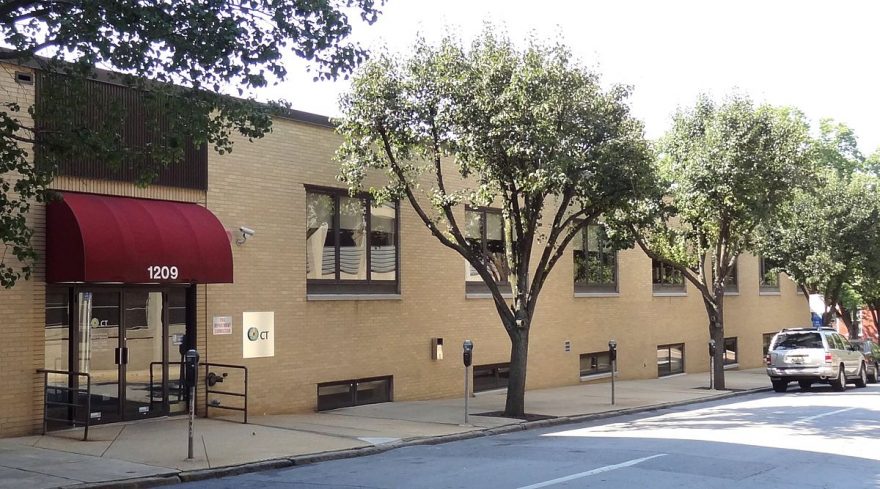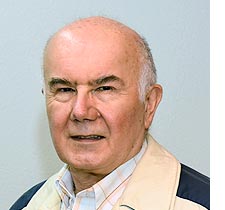Coca-Cola´s tax benefits start “at home”, pass through Brazil and concern the European Union
By Moriti Neto and Guilherme Zocchio
The British magazine Ethical Consumer, created by an independent group of researchers, activists and journalists, is headquartered in Manchester, England, since 1989. Its priority as a mission is to keep track of the “challenging corporate power”. The idea is to have less abusive global companies through the pressure of organized society.
The English publication researchers perform a thorough job of investigation to rate companies based on the criteria of human rights, lobbying, environmental (ir)responsibility, gender and race democracy and animal testing. It also highlights an evaluation item called “anti-social finances” that lists companies in the areas of tax evasion, avoidance of taxation and strategies to prevent the regulation of tax havens.
In 2017, considering the worst ranked in the three aspects, a transnational manufacturer stood out: Coca-Cola. The world’s best-selling sugary drinks company has achieved the worst rating using tax evasion strategies, avoidance of taxation and postponing measures against the EU investigation regarding tax fraud in Luxembourg.
In August last year, the Ethical Consumer team had access to information from the Hoovers corporate website that collects data from the world’s largest corporations. Two high-risk companies registered in tax havens related to Coca appear in it. Besides the fact that these holdings (companies that have the main “activity” of having majority ownership in a business group) are based in the Cayman Islands and Hong Kong, the official head office address was in Delaware, United States.
“Coca therefore received the worst rating in using tax evasion strategies”, says Jane Turner, a board member of the Ethical Consumer Research Association, the British entity that funds the cooperative’s media vehicles.
Also, based on a report produced by the US Institute on Taxation and Economic Policy, the magazine published that from 2008 to 2015, the soft drink giant´s strategy was to use gaps to pay less than the income tax required in the United States, which is a 35% taxation on profits. Furthermore, for many years, Coca has not collected anything.
During the period, the mega-company only paid 20.4% in taxes on the billion-dollar profits it obtained, almost 15% less than it should collect. Representatives of the Institute wrote that “while US lawmakers are trying to reform the corporate tax code, this report shows that the focus of any review should be to close gaps rather than reduce rates”.
Another issue informed by the magazine’s investigative team, the NGO Computer Business Review reported that Coca-Cola is among the corporations to be investigated by the European Union Parliament on tax manoeuvre involving tax havens. Preliminary findings contain evidence that the company has made secret tax agreements with Luxembourg, considered an island of exemption in Europe.
Your grass is no longer green
On November 1st, 2009, the international NGO Tax Justice Network, based in London, UK, disclosed the Financial Secrecy Index, a report that lists countries according to a classification that considers categories of fiscal transparency and disclosure of financial balance sheets. It is foreseeable to find the European Luxembourg and Switzerland at the top of the ranking of less transparent systems in second and third places, respectively.
The top position in the podium belongs to an American territory: the small state of Delaware, the second smallest in the United States, just 1:30h far from the White House in Washington.
It is curious to note that the US government, then chaired by Democrat Barack Obama, had declared war on tax havens such as Luxembourg, Liechtenstein and Switzerland in an effort to highlight these European countries as sources of capital flight and tax evasion.
However, the data collected by the Tax Justice have made it difficult to oppose Delaware’s not honorable position. In only a small two-floor building in the state capital of Wilmington, with 75,000 inhabitants, there are no fewer than 285,000 registered corporations and financial institutions in the world.
There, in the North Orange Avenue 1209, at the Corporation Trust Center, they remain at a zero rate taxation (or near it) provided that most of the directors are from outside the US. Incredibly, this micro-space is home to the official addresses of corporate giants such as Coca-Cola, Ford, Google, News Corp, Apple and General Electric.
In addition to other buildings in Delaware, more than half of the publicly traded companies in the United States are registered there. The estimate is that one million companies have official addresses in the state, that is, there are more records of legal entities than inhabitants (898 thousand). Two thirds of these companies are included on Fortune 500 list compiled by Fortune magazine with the five hundred richest corporations of the planet.
In summary, all these transnational companies are in a territory that concentrate only 0.29% of the US population with a common goal: to minimize the payment of taxes. This is because local law allows “incorporated companies” (the process of separating a company from an individual such as Facebook and Mark Zuckerberg) to significantly reduce tax liabilities by transferring revenues to the holding companies.
Specifically, Delaware state law does not apply taxes on “intangible assets” such as trademarks, royalties, leases, and copyrights. For example, under normal taxation in most US states, if company A owns the copyright of song B, whenever song B is licensed for use, company A will receive money for it, but will also have to collect taxes in the state in which it operates. However, if that company transfers revenue to headquarters as the small building in North Orange, even if only an office with half a dozen employees, cash flow is not taxed, which annually “saves” billions in taxes.
This is what happens with Coca-Cola, which operates as the mega-company that actually is based in the city of Atlanta, Georgia, but maintains the “legal address” in Delaware.
Easy, easy
A true tax haven in the middle of the US soil. Yes, that exists. Worse still: the East Coast state allows for registration of limited liability companies (LLCs), which waive the disclosure of “real owners.”
However, the “Delaware Gap”, the difference in tax treatment that has attracted thousands of companies to Wilmington, is a taboo subject for the US government. Democratic and Republican presidents are in agreement regarding this. From Obama to Donald Trump, the subject is not even mentioned.
Moreover, it is quite easy to “open” a company in Delaware. There are sites based in Dubai, United Arab Emirates, promising to register in the US in incredible two days, via online, in the offshore format, the common name given to ventures and bank accounts opened in territories where there is lower taxation compared to the original country of the owners, i.e. tax havens.
Delaware business register offices operate 24 hours a day, and there are hundreds of intermediary companies offering services to open offshores, as well as “consultancies” guaranteed by the payment of a yearly fee of US$ 250 (approximately R$ 800) and nothing more than filling out online forms.

However, for members of the US Federal Public Attorney, corporate owners in Delaware “hide in front of the authorities”, taking advantage of the state’s flexible tax system. The problem is internally relevant, not only in issues of tax evasion, but also thanks to gaps used by criminal activity. In this sense, even money laundering committed by organized crime turns on the red light in the offices of public prosecutors.
The situation is strange. The United States pretends to lead the fight against global money laundering and terrorist funding. However, the laws of a state of the federation allow the anonymous registration of mega-corporations, such as Coca-Cola and McDonald’s, in the case of the food industry, to perform obscure financial transactions.
Even former Republican senator Carl Levin – now retired – considered a belligerent and extreme protectionist when it comes to the US economy, did not contain himself talking about Delaware when he was chairman of the US Senate Banking Committee. Asked to ascertain information about the Swiss banking system, he was fully aware that “Delaware has the ability to embarass the United States in terms of tax haven”.
In 2010, the Congressman presented a transparency report to the other senators in order to contain the abuses of companies registered to commit tax crimes. Delaware did not contribute to efforts to the point that the senator and other politicians in Washington recognize the need for the country to adopt best practices and introduce new transparency rules to “keep the overall credibility as a leader of financial transparency”.
Inside and outside home, only joy
Professor Reginaldo Carmello Corrêa de Moraes, a retired political scientist at the Universidade Estadual de Campinas (Unicamp) in Brazil, and currently the information coordinator of the Instituto Nacional de Ciência e Tecnologia para Estudos sobre os Estados Unidos (INCT-Ineu), helps to uncover this “mystery”.
He summed up a set of readings – books, reports, articles – that show how the network of tax havens that benefit transnational corporations has grown, what role it plays in contemporary capitalism, who benefits, and who is harmed. “My goal was to produce a series of disclosure articles, for a wider audience than the one reached by academic studies”, he says.
The professor recalls that Delaware received international spotlight in 2009 when Barack Obama attacked the Cayman Islands at an international event, claiming that the largest
building of the island was also “the biggest of the scam”, as it housed 12,000 corporations. Then the head of the Financial Authority of the Islands on that period, Antony Travers, countered: “It would be wiser for Mr. Obama to have a look at the 1209 North Orange Street building in Wilmington, Delaware”.

“Delaware has adopted permissive legislation, one that enables the hide-and-seek of fortunes and corporate profits, but also the hide-and-seek of money obtained through crime in the strict sense. Other states, also. This kind of legislation has moved forward, as in Florida and Nevada”, explains Reginaldo.
He says the small state is an “isolated” tax haven in US territory.
When Coca-Cola benefits from “tax gifts” earned in the Free Economic Zone of Manaus in Brazil, as we have shown, and it remits profits to the United States to the “administrative” head office registered in Delaware, the transnational beverage company benefits twice from billionaires tax maneuvers.
Let us summarize: Brazil’s tax system gives historical “discounts” to Coca-Cola, in the billions, favoring the Brazilian subsidiary of the transnational company located in Amazonas. As a result, gains obtained here increase on a billion scale, and profit remittances fly to the US to be “managed” in Delaware. There, new advantages ensure that the corporation escapes taxation by various means. And obtains tax advantage.
The surrounding countries are, of course, the most impaired in this story. Not that this happened recently. In fact, when tax havens were still embryonic, multinationals, including ultraprocessed food, were already operating under-billing and over-billing schemes to bypass national laws restricting profits remittances.
“Today, things have gotten worse. In the 1970s, for example, there was a tractor assembler in Brazil that ‘imported’ the engine and transmission box from companies of the same group, in an intercompany trade. It makes a difference for transnationals to assign a high value to the imported item if you want to make a profit remittance disguised as cost. This practice has risen too much in recent years”, emphasizes Corrêa.
This year, the Brazilian IRS has started an investigation to determine whether Coca-Cola over-bills products to increase profit. The calculation comes at a time when remittances from the Brazilian subsidiary to the US had a strange growth of almost R$ 1 billion between 2016 and 2017.
Meanwhile, US inspection agencies charge the company US$ 3.3 billion (R$ 13 billion) in unpaid royalties from seven countries, including Brazil. Notified by the US IRS, the company denies the irregularities, something that also happens here.
However, Coca executives, nationally and internationally, have explanations to give, such as the reasons why the manufacturer sells the kilo of syrup for approximately R$ 200 to Brazilian bottlers, despite exporting the product for R$ 20, ten times less.




